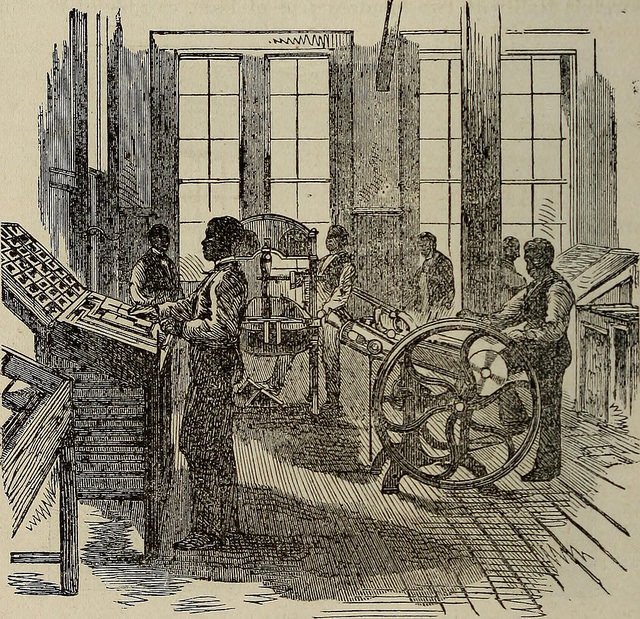To a copyright lawyer, this question sounds like it’s probably about one of two things: was some work ‘published’ for the purposes of fair use analysis, or was the work ‘published’ for the purposes of public domain status determination. (It is often more likely to be fair use to copy from published material, and there are TONS of different ways in which the act of publication (and its date, if it occurred) affect the public domain status of a work. Go look at Peter Hirtle’s magic headache chart, if you’re curious about that.)
BUT, copyright-y type people, THAT IS NOT USUALLY WHAT ACADEMICS ARE ASKING ABOUT WHEN THEY ASK THIS OR SIMILAR QUESTIONS! (Learn from my prior confusions!)

count as “published”?
(Image from 1869 “Catalog of the Hampton Normal and Agricultural Institute)
Students and recent graduates often ask things like, “Does my thesis count as published?” Other authors of academic content may ask similar questions such as whether a blog post or pre-print ‘counts as published’. The issue underlying these questions is that many academic journals (and most publishers of other academic content) have a policy of only accepting work that has not been previously published. Many journals also require that authors not submit their work for possible publication at more than one publication simultaneously. There is a premium placed on “newness” and “originality” of publications in academia.
I was aware of this as a general consideration in academic publishing when I first started in my current position, so I wasn’t surprised that authors had “does this count as published?” questions that were not really copyright-related at all. But I -was- surprised when I first encountered a journal editor who asked -me-, “Now, what are the rules about what’s not eligible because it’s been published?” Turns out a lot of academics think ‘what counts as published’ is a universal and externally-applied rule. Fact is, it’s an internally-created rule, has almost nothing to do with copyright, and even publications that phrase their “originality” requirements the same way may have different interpretations of what ‘counts’ as published in such a way as to disqualify it for submission to the journal.
Most journals and/or publishers, however, do have a public webpage with some information about what they consider as disqualifying prior publications. Authors may not realize they can look there, but it often answers the question readily.
Submission of an article implies that the work described has not been published previously (except in the form of an abstract or as part of a published lecture or academic thesis or as an electronic preprint, see ‘Multiple, redundant or concurrent publication’ section of our ethics policy for more information), that it is not under consideration for publication elsewhere, that its publication is approved by all authors and tacitly or explicitly by the responsible authorities where the work was carried out, and that, if accepted, it will not be published elsewhere in the same form…”
Example of publisher information, from the journal “Biology of Blood and Marrow Transplantation
Sometimes, the publisher site will refer to a disciplinary standard on the issue – and it is quite interesting to note that there are variations on the issue between disciplines! Some consider a conference paper disqualifying, and some don’t! The standards are evolving actively right now in many disciplines, as they consider how they want to handle “pre-print” servers (physics and CS has had arXiv for forever, but many other disciplines are only starting to explore this kind of research distribution.)
Important to note: Many journals/publishers do not consider thesis or dissertation ‘publication’ to disqualify a work for submission! Sometimes that’s explicitly stated in their author information (as above.) Sometimes it’s not in their author information, but they still don’t think it’s disqualified! So if an author is concerned a student work may be disqualified because of ‘publication’, and the public information doesn’t address that, it’s never a bad idea to ask an editor or other publication staff.
In general, if an author is not sure if their work ‘counts’ as published in such a way as to disqualify it for submission to another academic publication, it doesn’t usually hurt to ask!

